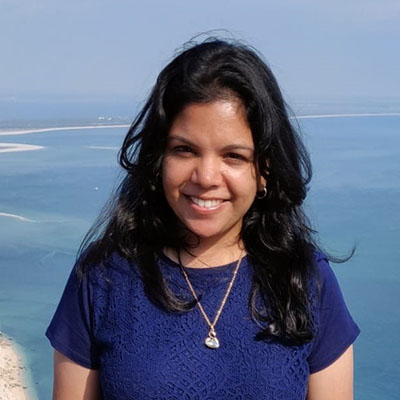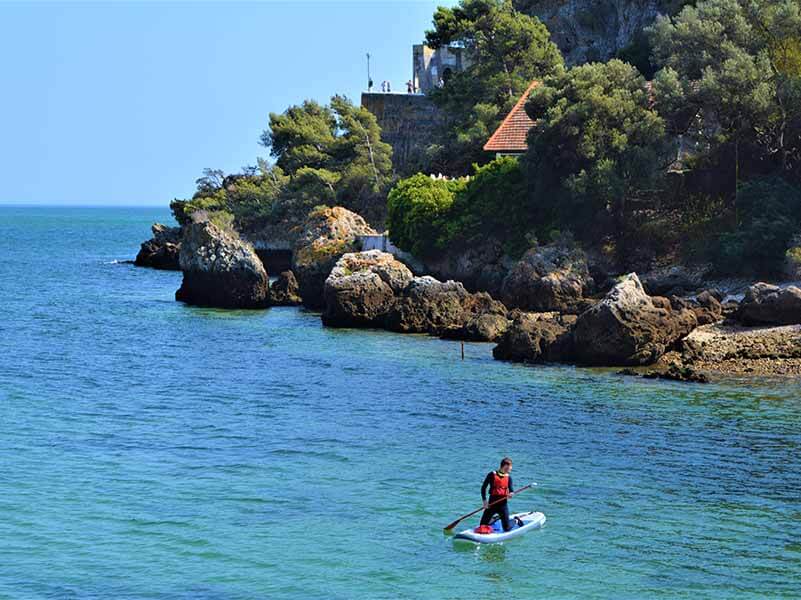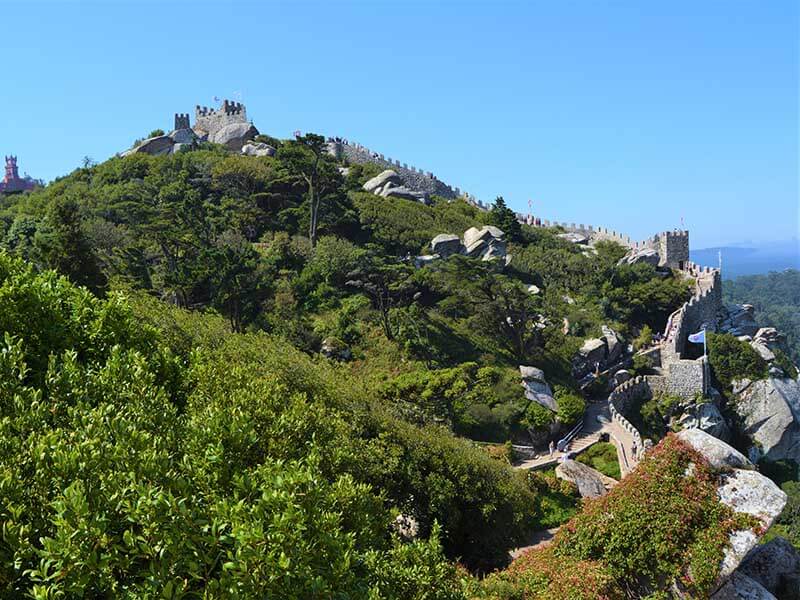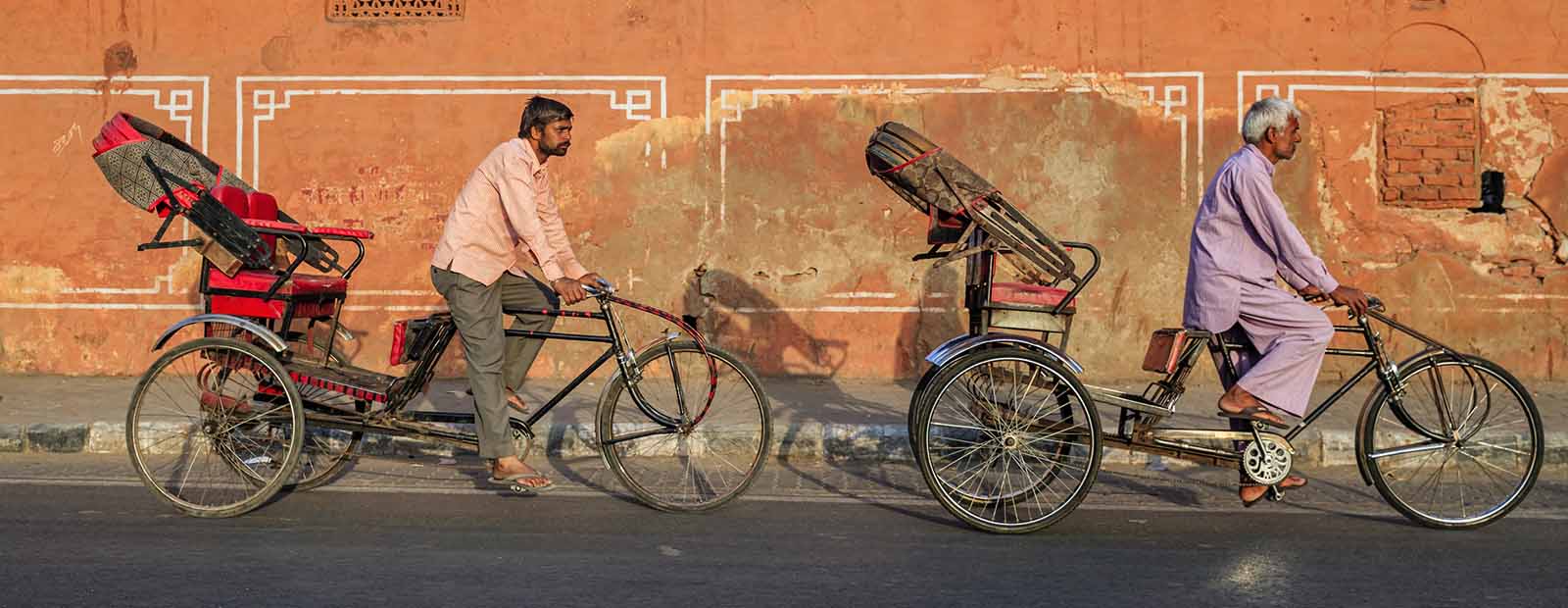
By Isabelle Anne Abraham
Travel Writer10 Feb 2020 - 5 Minute Read
It’s a common question for any traveler, but for a third-culture kid, it poses a bit of a dilemma: Do I tell them where I live? Where my birthplace is? My nationality?
Since arriving in Portugal for a 15-day trip, I’d heard “Where are you from?” more than a dozen times. In this moment, it was asked by Júlio, a local São Miguel resident I met in the Azores archipelago. “Mozambique,” I answered, anticipating the inevitable response to being a monoglot from a former Portuguese colony.
“You’re Mozambican? Then why don’t you speak Portuguese?” he demanded.
“I live in Mozambique, but I’m Indian.”
Skepticism clouded the Azorean’s face, so I added, “I’ve spent half my life in South Africa, which is why my Portuguese isn’t good.”
Júlio rolled his eyes in jest and clapped me hard on the shoulders. “So, really, you don’t even have a home?”
I shrugged and laughed as he walked away, but the remark niggled at me for a while.
Being the daughter of first-generation immigrants, I’d always hesitated to tie myself to any one place. The concept of “home” was uncertain because, well, where was it exactly? Was it in a specific city, country, or continent – all of which I’d traded several times over the years? Was it among friends and family, who were scattered around the globe? Or did it lie in the routine of everyday life, which was never a constant for me?

Despite Portugal’s history of exploration, my answer to “Where are you from?” was often met with curiosity, confusion, or even suspicion. Sometimes it was as simple as a blank look; other times, more memorable reactions, like the one I received on a pier in the Nature Park of Arrábida, surrounded by the bay’s infinite shades of aquatic blue. The word “Mozambique” had barely left my mouth when a chatty paddleboard instructor sputtered incredulously, “What the fuck? What the fuck!” It took a good few minutes to convince him that I wasn’t a Mozambican pretending not to speak Portuguese.
It was only the first week of my trip, and I was beginning to feel mildly anxious whenever the question was directed my way. So, at a tavern in São Miguel, Ileana – another solo traveler – offered a suggestion.
“Just tell them you’re South African,” she said, as we tucked into Azorean beef and freshly prepared fish. “Then you don’t have to explain the language problem.”
As a Dominican-American living in New York, one of the world’s most ethnically diverse metropolises, Ileana knew a thing or two about dealing with cross-cultural irritants.
“The thing is,” I interjected, “I’m not South African. Maybe I don’t really belong anywhere.”
* * * * *
“Portuguesa?”
“Não.”
“Espanhola?”
“Não.”
“Brasileira?”
“Não, sou Indiana.”
“Mas és de onde?” But where are you from?
The interrogation was delivered by a scowling taxi driver, António, as we crept along the tortuous road up to a Moorish castle back in continental Portugal. After spending the previous 15 minutes shaking his fists at swerving vehicles, his bright cyan eyes were now focused on me.

As soon as I replied “Maputo,” the capital of Mozambique, António launched into rapid-fire Portuguese: “Lembra que chamava-se Lourenço Marques? Um dia, vou visitar…” (“It was called Lourenço Marques, remember? One day I’ll visit…”)
I nodded at his increasingly complex sentences, occasionally throwing in a “sim” to reassure him I was still listening. As our ascent steepened, the passenger window slid down, and he instructed me to breathe in the Sintra Mountains.
The purifying air roused my lungs, and I asked if we could switch to English. Without missing a beat, António gestured toward the rugged landscape.
“I’m actually Ukrainian, but I’ve been here 37 years,” he said, as we reached the summit under a canopy of oak trees. “This is my home.”
* * * * *
My last few hours in the country were spent on the terrace of a tranquil cafe in Lisbon. As I watched a young girl test her balance on a fountain ledge, I remembered a Danish author who, more than a century earlier, had written about leaving Portugal: “I was heavy-hearted; should we ever meet again? Never more should I visit this beautiful distant land, where I had felt myself well and at home.”
Unexpectedly, I too had felt a strange sense of familiarity wherever I went in the country.

The Azorean island’s rain-clad laurel forests evoked memories of the tropical plantations of Kerala, where my long-gone grandparents had once lived.
Whether imagined or not, the Portuguese Riviera’s resemblance to Durban, the lively South African port city in which I was born, continually struck me with déjà vu.
In Lisbon, I saw traces of Mozambique everywhere: in the colorfully faded apartment buildings, in the rhythmic notes of Lusophone music, in the genial nature of the people. I’d even caught an aching glimpse of it gamboling past in the form of an Airedale Terrier named Zoco – the fluffy reincarnation of Dino, my childhood pet in Maputo.
By the end of my journey, I still couldn’t definitively answer the question “Where are you from?” But I was starting to understand that as a perpetual traveler, feeling at home could happen anywhere. And for a while, however briefly, I’d felt it in Portugal.
Discover similar stories in
connection
Travel Writer
After a brief stint in journalism and new media, Isabelle abandoned the nine-to-five to become a freelance editor.



16 Comments
I know the feeling. I am a descendant of Indian indentured laborers (called East Indians) and Middle Eastern merchants who ended up on Guyana in the late 1800's.
When people ask where I am from, and I say Guyana, they say 'Ghana?' and I have to explain, no not Africa, South America.
They then assume that I speak Spanish and I have to explain that no, Guyana is a former British colony and so we speak English. 'So there is a country in South America that speaks English and not Spanish?' they ask, a bit suspiciously. I answer, in fact there are three 'Guianas' a Dutch, a French and ours, the English speaking one. This blows their mind a bit, so with evil intent, I carry on, in fact these countries are in adjacent to Brazil which also doesn't speak Spanish. As their confusion grows, I finish up with the piece de resistance, so I am actually an East Indian, Middle Eastern, West Indian, South American, got that? This usually renders them speechless....
I agree with Isabelle - one of the the true joys of being multicultural, (other than confusing over-curious taxi drivers) is finding familiar things everywhere. In Guyana, we have Indian, African, Middle Eastern, Chinese, Portuguese and of course our indigenous people, so food and customs from all of these cultures are familiar to us. To find that the little sweet rolls or the salt fish we enjoyed growing up, tasted the same in Portugal was a reminder of this.
Thank you for your story! I had that same eerie feeling everywhere we went in Portugal's mainland for a two-week stay. I'd lived about five decades in the US, but have spent the past two decades in Mexico, another place that felt like home from the first, and where I became a naturalized citizen. But there's something inexplicable about Portugal. The people I met had some reserve, a kind of quiet. The food was always good, but a lot like home cooking, only everything comes with fries! The landscape's beautiful, with something to delight the eye everywhere you go. I have no Portuguese at all in my background, but, when we flew out of Lisbon for the US, I felt a real sense of sadness, of loss. Hard to describe in words. I do know that, although I have very few, one big regret is that I didn't discover Portugal sooner, didn't recognize it as a place for retirement, to put down late-in-life roots.
HI ISABELLE, Portugal, as you know, is a country of migrators. Let me offer you a suggestion as far as reading goes. One of my former profs at UCSB in California, was a Portuguese migrant to Brazil and later to the USA: Jorge de Sena, of whose books of poems I suggest one (don't know which but there are not many) in which he speaks of the 'imigrante'. Take a look at it, I suppose by now you know Portuguese well enough to understand, and if you wish, send me commentsI thank you for your time. Geraldo
Not a world traveler by any means; however, my experience has been leaving US to live in Jamaica, West Indies with the Peace Corps, visiting several times to various places in Costa Rica and living in the US west coast, northeast coast, southeast coast and traveling across the US from west to east coast, where I now reside - I never adjusted well to being in the US again with all of it's turmoil - I continue to be conflicted, wanting to get out of here - Recently, in a direct conflict with someone I know, he defined "Sovereign" and I agreed that is how I feel all the time: no roots, nothing making me feel at home - I do not have a lot of possessions and I do want to keep most of what I have, though I can give it up if absolutely necessary - So what decisions have I made regarding where I may feel more at home in a city inside the US and, of course, removing myself from the US when and if the opportunity arises? At this time, I have a lover who also wishes to emigrate from his country of Algeria, which is considered an ally of the US; I bring him up solely due to the fact that, at my age, I am not sure I want to be alone in a city far from anyone I know in the event I need serious help and would be unable to get what I need - I will feel much better knowing he is close at hand either here in the US or in another country - The city I consider will immerse me into Spanish culture, which I have identified with for many decades: North Miami, Florida - With fortune, I will be able to make a move this year or early 2021 - Getting out of the troublesome South Carolina into another culture where I am aware I won't be 100% accepted does not bother me; I can make my way - In my head, I am always somewhere else, getting to be my authentic self - Being trapped here is a burden and I will myself to get the courage to make the move I can see is my destiny whatever I have to leave behind.
Great article!
As an former Indian citizen, turned British citizen, now living in Australia - this resonated with me a great deal.. Thanks for sharing!
This story sounds very familiar to me, I was born in the Philippines and lived there 8 years, then was brought to Germany by my father where I lived 14 years. But I never felt at home anywhere. Then at the age of 23, I left for Mexico because of an instinct and this is where I stayed... I've been here for almost 9 years now, my son is 6, and I think I've found my home... Even though I still c
an't get rid of my accent when I speak in Spanish. Though nobody seems to know where my accent comes from!! The best thing is, people think I'm Mexican until I start talking :D
Wonderful article. I can relate. I'm Nepali Dutch by heritage, born in the USA, but grew up (2-12yrs old) in Kuwait, then Holland, then N.America. I travel a lot and never quite know how to answer "where are you from?"
My last post in the American Foreign Service was Casablanca, Morocco. From which I traveled many times to Portugal -- particularly Lisbon. While I did not become attached to Portugal as a home substitute for the US, I did find Portugal easy to travel in and its inhabitants very easy to get along with and very polite.
Thank you so much for the comments! I enjoyed reading each of your personal perspectives, and am glad that people can relate to the story in some way.
@Geraldo, I couldn't find "imigrante" online, but I'm very interested in reading it. If you see this comment, please feel free to send me a link or something. (I'm easily contactable online.)
As a Brazilian-born woman who lived in Chicago for 4 years before immigrating to Canada, I really feel this article. When people ask me where I'm from, I'll always say Brazil, but having lived over half my life elsewhere, my Portuguese is now worse than my English. I'm fluent in both languages, but frequently forget words in my mother tongue, which almost never happens when I speak English. I left my hometown when I was 10, and I've lived all over the place. Even when Brazilians ask me where I'm from, I'm not quire sure what to say. I tell people where I was born and that I've moved around a lot. Usually this has led to interesting conversations, but I do still have this feeling that I don't quite belong anywhere. Which is why the road is always calling, and I've discovered "home" isn't a place—it's a feeling. It's the feeling of peace in the familiar, and the familiar doesn't have to be stationary.
Sooo relatable. Nice to know there are others out there in the world too. If I had a penny for every time I've heard "but you don't..." we could all go for dinner together. People who authorities are convinced do not exist and the world is poorly equipped to deal with - unless you can offer extortionate amounts of cash.
Nice!
I felt a bit like this in South East Asia too. It was all the pleasant experience. Things I couldn't experience in Sweden where I'm born. It's something like you open up to pleasant experience and the place start to feel like one's own.
Great article - good and *structured* writing craft too!
If you feel like it check out my homesite "Continuation" where I have posted many travel articles and more.
http://www.andreasingo.se/travelstories.html
Enjoy!
Lovely piece. I moved to Lisbon 15 months ago from the US - retired so I'm from a different generation where asking someone where they are from was quite normal. The world is a much different place than the one I first traveled around in the 80's. So now I've developed a sensitivity to many people having difficult/complicated backgrounds and even nationalities. Since living here and traveling around the EU more I've learned to allow people to tell me where they are from at their own pace, if at all. I will often offer up my background just in case they are curious but not expecting the same in return. And truly, I don't need to know their background to enjoy a brief conversation in a passport line or on a day trip.
Hi Isabella,
Reading your stories made me cry. Let me explain.
I am full blooded Indian from India with a family tree that goes back 12 generations. That being said, we in India are also mixed. Dravidian, Aryan, and from further East. So who knows what might show up in my DNA results?
I moved to the USA in my 20s and have lived here ever since, so the question of where are you from still comes up for me. As Indians ethnics we have traveled all over this globe and we have mingled and mixed with others, and somehow we still hold on to our idea of being Indian. I don't know if it is good or bad, I guess it just is what it is.
May be the Indians in India don't want to claim us any more, but that does not matter much. Be proud of your original ethnicity and the many icings and sprinkles on that cake. Just as no one can take away "Chai" and "Yoga" from the rest of the world, no one can take away the "Indian" from you and I.
At the end of the day we are all the same, with just enough differences to make life interesting. Love and light to you!
Amita
Hello,
We’re looking to establish long-term cooperation. Please send us your offer and price list. Contact me via WhatsApp:
+48 731 721 883